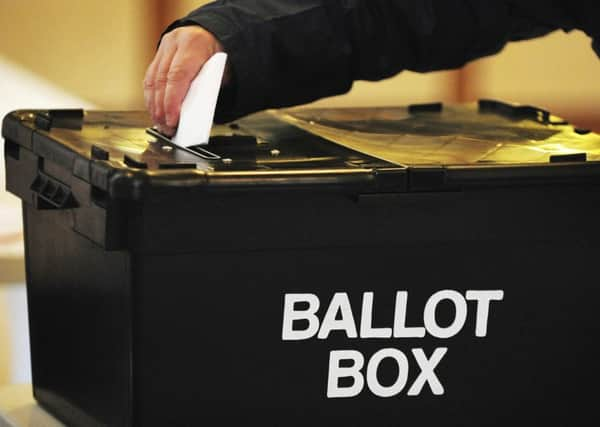Jeff Salway: Manifesto plans herald dawn of fiscal honesty


With the Scottish rate of income tax (SRIT) almost a month old and Holyrood getting far greater tax and welfare powers next year, tax was always going to be a source of lively debate.
It will have very little bearing on the result, because the SNP’s large majority is assured. That has given it the luxury of playing safe, while others, in the unhappy knowledge that they have little to lose, have been bolder.
Advertisement
Hide AdAdvertisement
Hide AdScottish Labour has run on a pledge to increase all income tax rates by 1p (within the restrictions of the SRIT) and raise the top rate to 50 per cent next April. The Lib Dems also want a 1p income tax increase, while the Greens propose a higher rate of 60 per cent and to reform the other tax bands.
The increases, going against the grain of accepted political wisdom on pre-election tax pledges, have been pitched against a backdrop of the public service cuts being imposed by both Westminster and Holyrood.
The proposed tax increases have been dismissed as “tax grabs” by those in favour of the status quo, yet more than half of voters polled by BMG said they supported the 1p increase plan. They were indeed bold, albeit only in the context of political discourse. In reality they are distinctly timid, given the daunting challenges Scotland faces over the coming years.
Scottish Labour’s plans would raise up to £1.2bn, according to analysis by the Institute of Public Policy research (IPPR) Scotland. The Green party’s model would generate up to £950m, the Lib Dems would raise up to £750m and the SNP some £300m.
That those proposals will attract little reward from the electorate is partly due to the 2016 contest being played under the old rules. Next time will be different. The electorate will by then have adjusted to a new reality in which Holyrood is responsible for income tax rates, bands and thresholds and some £2.5 billion of welfare benefits, among other devolved powers.
Voters will be able to judge Holyrood on its competence in handling the expanded powers, and on its appetite for taking the responsibility that comes with them.
When the dust settles on the 2016 election there will be a temptation to look at the results and conclude that proposing higher rates of tax is a mistake. That would be wrong, not least because those policies have won support in both the opinion polls and on the doorsteps. It would be unfortunate too, because Scotland has an opportunity to embark on a new era of honesty on tax and spending.
No more pretending that the price to pay for low taxation isn’t yet more deterioration in public services, that inequality isn’t widening, or that we don’t face a massive challenge in supporting an ageing population, or that universal benefits are sustainable, or that we don’t have a housing crisis on our hands.
Advertisement
Hide AdAdvertisement
Hide AdScotland’s politicians will no longer be able to sit on the sidelines as other governments struggle to find a balance between tax and spending. This is now part of the conversation north of the Border, and one hopes for the country’s sake that it can be an honest, grown-up one.